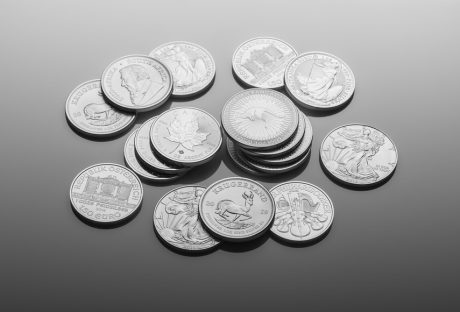When Satoshi Nakamoto’s whitepaper for a new cryptocurrency was given a life, many expected Bitcoin to be adopted by nerds or enthusiasts who live by their own rules. But Bitcoin secured a permanent place in history as the world’s first cryptocurrency. From its humble beginnings, it established applications that have disrupted politics, media, finance, governance, and more.
Fashion and cryptocurrency

It’s a popular myth that Bitcoin’s (and the other altcoins) only purpose is to make traders money on the cryptocurrency market. But not everyone checks up the Bitcoin price because they want to invest in cryptocurrency.
Luxury brands can benefit from blockchain because it helps authenticate items and prevent counterfeiting, thus earning them an honorable reputation. Blockchain can also act as “social tokens” that build community among crypto-enthusiasts, making luxury brands more desirable for their exclusivity.
Practical uses of blockchain and Bitcoin in the Fashion World

Authentication of goods
A new wave of companies is using the blockchain to certify that their products are authentic. The seamless integration of the blockchain into e-commerce platforms allows shoppers to get more information about a product, including its provenance and how it was made. A QR code may be used on the packaging of authentic designer products, which can be scanned by smartphone users to verify their authenticity.
Cryptocurrency payments
Blockchain technology can be used to improve the efficiency of payments between parties at different stages of the supply chain. Bitcoin’s blockchain was designed with the goal of creating an entire financial system that is decentralized without having to trust any third party. Using blockchain, fashion brands can receive payments internationally quickly, securely, and economically.
Product lifecycle tracking
As more luxury brands adopt digital solutions, it is becoming increasingly necessary to track product life cycle events. With blockchain ad authentication, brands can better understand how their product is affecting the environment and manage the full life cycle of their goods.
Tackling ethical issues in Fashion
With the rising public consciousness about ethical issues related to apparel, blockchain technology will be able to address these concerns in a more elegant way that will allow brands to be more aware of their manufacturing practices. This will further encourage manufacturers to be more conscious of their ethical responsibilities.
The Future of NFT in Fashion
What is NFT? It is a digital-only item that can be traded much like a real-life artifact. Unlike images that can be endlessly broadcasted online without belonging to anyone, NFTs are carefully curated into an immersive experience that gives you the impression of owning something physical.
NFT’s are seen as the future of Fashion
In March 2021, street lifestyle brand RTFKT sold more than $3m worth of new season sneakers in just seven minutes through an NFT.
As the debate about the value of digital goods continues, consumers are starting to use cryptocurrencies to acquire luxury products. A new class of customers is paying for luxury items upfront, with cryptocurrencies tied to the value of a real-world property. Nike, Burberry, and Louis Vuitton already have NFTs for their brands, and many others follow.
Fashion fans paying with Bitcoin
While the majority of fashion brand clients do prefer to pay with a traditional method, there is a growing demographic of individuals who enjoy cryptocurrency, especially those who have made money from it. These crypto enthusiasts want to buy Bitcoin with Paybis and purchase their fashion goods with it. Some watch brands (like Hublot) are already embracing the change and will allow purchasing with Bitcoin on their online store.
Bitcoin loyalty points
Cryptocurrency can be implemented into a loyalty or rewards program, offering users incentives for purchasing from brands that accept cryptocurrencies. The amount in Bitcoin can be stored in the crypto wallets of the customers if they want to trade it at a later stage for a higher amount.
Merchants that accept cryptocurrencies as a form of payment may also benefit from the advantages traditional customers have. In aggregate, 36% of customers that use cryptos to make purchases have average incomes of over $100k and purchase amounts of around $450 per order. This is compared to about half that ($200) for customers who do not use cryptos.
Summary
Bitcoin and non-fungible tokens have a decisive role in the fashion world because they allow consumers to buy goods from faraway places as well as verify their authenticity. Fashion items can be costly, so these two technologies will prevent the industry from taking advantage of scammers and counterfeiters. Not only that, reward systems and loyalty programs can save customers a ton of money, given the fact they already save from the cheaper transaction rates.
Read Also:






















